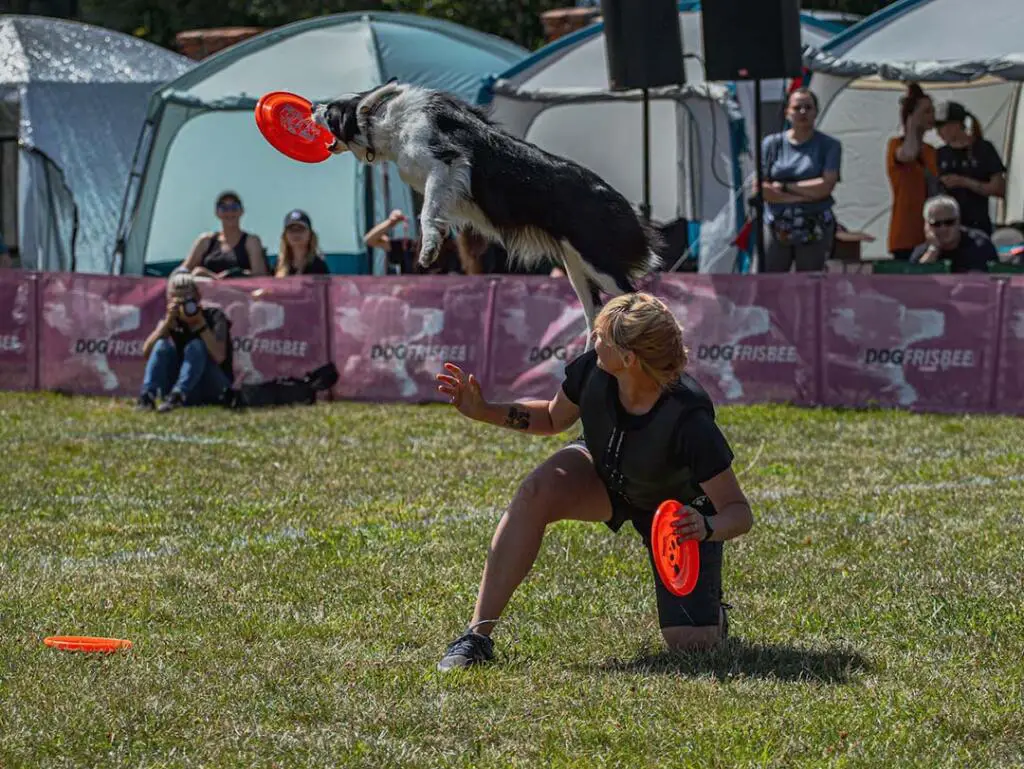As the second-most dense city in the country after New York, San Francisco is home to a plethora of dog services. Though it’s far from being the country’s dog capital—that title proudly goes to Montana and Arkansas, with 52% of households owning a dog—San Francisco dog trainers are nonetheless among the most skilled and adaptable professionals in the field.
But with so many dog trainers to choose from, finding the right trainer to trust with your precious pet can be a struggle. We aim to help with just that. In this post, we’ll show you how to choose the right type of dog trainer for your dog in the San Francisco Bay Area, including what to look for and how to evaluate potential trainers.
Article contents
Determine your training goals
Ask yourself this: what behaviors or skills do you want your dog to learn or improve?
Do you want your dog to master basic obedience commands, or do you want to address specific behavioral issues? Perhaps your dog is already well-mannered, and you want him to participate in dog sports, instead? Clearly defining your training goals is an important first step in finding the right dog trainers in San Francisco, as different trainers specialize in various areas.
If your goal is to train your dog in basic commands, look for trainers who excel in obedience training. On the other hand, if your dog displays behavioral issues like barking, leash pulling, and aggression, seek out a trainer experienced in behavioral modification. For dog sports, such as agility, lure coursing, or hunting sports, search for a specialized trainer with a background in the sport or activity you’re looking to train your dog in.
Regardless of your training goal, look for dog trainers who explicitly mention positive reinforcement in their philosophy. Reward-based dog training is scientifically more effective than punishment-based training methods. This approach not only builds trust and strengthens the bond between owner and dog but also makes the training process enjoyable.

Choose between group class vs. private dog training
Group classes and private training come with their own set of advantages and disadvantages. Group classes, for example, allow your dog to socialize with other dogs and people, promoting better social skills and behavior across various environments. They provide distractions that mimic real-life scenarios, which is especially beneficial for puppies because it helps them develop the skill to focus on their owners.
The problem with group classes is that they don’t address specific needs. They may also be too overwhelming for some dogs, such as those with anxiety and severe behavioral problems. This is where private training comes into play. Private training offers personalized attention, allowing the trainer to tailor the sessions to your dog’s unique requirements.
Check reviews and testimonials
Look up “dog trainers in San Francisco Bay Area” on Google and scroll through the reviews and testimonials from clients who have previously worked with a trainer. This can give you an idea of what you want to see in a dog trainer. Online reviews provide valuable insights into the experiences of other pet owners and can help you make informed decisions. Look for trainers with a diverse range of reviews and consistent positive feedback. Pay attention to reviews that specifically mention training goals and handling behavioral issues.
When browsing through reviews and testimonials, rely on authoritative websites and platforms known for unbiased and authentic feedback. Aside from Google reviews, check Yelp, Better Business Bureau (BBB), SF SPCA, professional dog training associations, and independent pet review websites that offer honest feedback.
Seek out recommendations
When looking for the right dog trainers in San Francisco, recommendations from friends, family, veterinarians, and local pet forums and communities can help you find a dog trainer that ticks all your boxes. Personal experiences from people you trust provide no-nonsense and honest feedback on a trainer’s effectiveness and methods. You can even look at how well-trained their dog is and observe the results firsthand.
Meanwhile, local pet forums and communities allow you to engage with a diverse group of dog owners, giving you access to the latest information about trainers and emerging professionals in the field.

Look for qualifications
To ensure you’re entrusting your dog to a qualified professional, ask for the trainer’s education and background in dog training. Some trainers learned dog training through apprenticeships and years of experience, whereas others have taken a more academic approach to their skills.
Certifications aren’t mandatory but beneficial, as they show dedication and passion for their field. Here are some certifications from reputable organizations:
- International Association of Canine Professionals (IACP)
- Association of Professional Dog Trainers (APDT)
- Certification Council for Professional Dog Trainers (CCPDT)
Ask questions
Remember: Just because a trainer has certification and shining reviews doesn’t always mean they’re a good teacher or uphold the standards of their education.
As such, don’t be afraid to ask questions before hiring a trainer to determine they’re a good match for you. If they get angry or defensive, it may indicate a lack of transparency or an inflated ego. A reputable trainer should be open about their experience, methods, and any concerns you may have.
Here are some questions to ask:
- What’s your preferred training method?
- What training equipment do you use?
- What kind of dogs have you worked with?
- How do you handle behavioral issues?
- How do you keep up with continuing education?
- Do you offer follow-up support?
- Can I observe a class?
- How long have you been training dogs?
If any of the trainer’s answers leave you feeling uneasy or doubtful, don’t hire them. Watch out for red flags and wordings such as alpha, dominance, submission, and punishment. You’ll find these words in a variety of contexts, including conversations with the trainer, promotional materials, or their website. When trainers use these words frequently, this could suggest a training philosophy that relies on outdated (and oftentimes inhumane) dominance-based techniques, which doesn’t align with the positive training methods you should be looking for.
Moreover, avoid trainers who guarantee they’ll “fix” your dog in a specified amount of time. Dogs are sentient beings, and there isn’t a one-size-fits-all timeframe for behavioral issues. And finally, if they blame or shame you for being “too soft” or “weak” to your dog and thus the reason for unwanted behaviors, that isn’t a trainer you want to hire. A dog trainer should respect you and your dog.
Final Thoughts
The San Francisco Bay Area is rife with skilled and reputable dog trainers. Many prioritize positive reinforcement training methods, ensuring a positive and enjoyable learning environment for both you and your dog. Ready to find a dog trainer that best suits your needs? Check out our comprehensive directory of skilled dog trainers in the San Francisco Bay Area.
